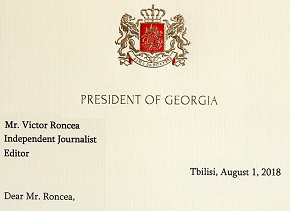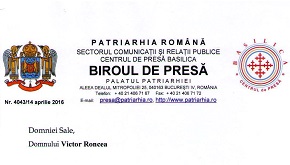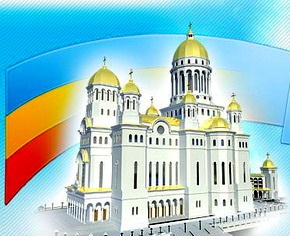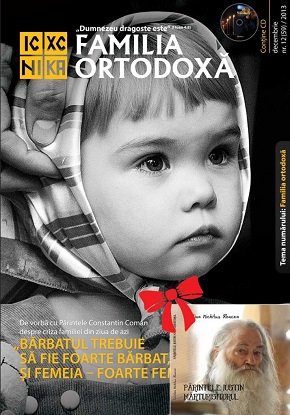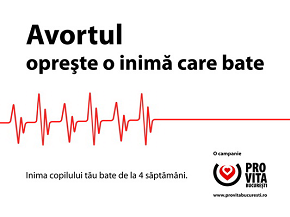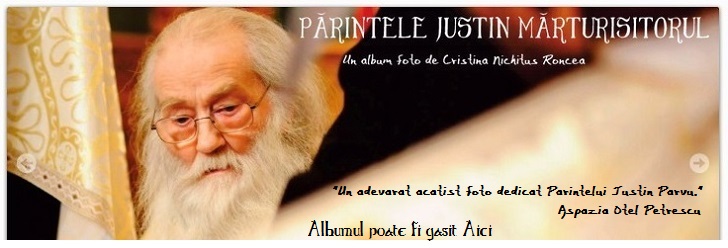Guvernul elvetian vrea sa introduca pasapoarte electronice biometrice, ca si in Romania. Opozantii au colectat insa suficiente semnaturi pentru a declansa un Referendum, transmite swissinfo. Urmariti mai jos cateva aspecte dintr-o dezbatere foarte vie care are loc in Elvetia, chiar acum. Fara ridiculizari, fara minimalizari, fara tampiti. Site-uri neguvernamentale, partide, experti, ziare, inclusiv in engleza, televiziuni cu productii in franceza si germana, cu toate dezbat democratic si responsabil o problema grava care poate afecta prezentul si vitorul cantoanelor. Spre deosebire de Romania, autoritatile din Elvetia au propus introducerea Pasapoartelor Biometrice in martie, anul viitor (2010). Tot spre deosebire de Romania, democratia din Elvetia permite lansarea unui Referendum – chiar daca legea a fost adoptata deja de Parlament – cu conditia de a strange (doar) 50.000 de semnaturi in 100 de zile. Pentru Pasapoartele Biometrice s-a decis Referendum in data de 27 mai, a.c. Sa ne rugam sa iasa NU si sa ne fie de exemplu!
Elvetienii au pornit Campania SPUNE NU
Specialistii elvetieni confirma, in contextul unei dezbateri publice lansate in aceasta tara pe marginea actelor biometrice, aceleasi temeri pe care Asociatiile Ortodoxe incearca sa le puna in vederea opiniei publice si factorilor de decizie politici din tara noastra.
Serge Vaudenay, de la Scoala Politehnica Federala din Lausanne, se arata ingrijorat de exact aceleasi probleme legate de securitatea tehnologiei RFID punctate de studiile independente romanesti realizate de Pr. Valica sau ACESDS. Astfel:
“Criptografia care trebuie sa protejeze amprentele digitale si imaginea digitala a fetei in pasaportul biometric elvetian nu este sigura, sustin mai multi profesori universitari de la Politehnica Federala din Lausanne, potrivit Agerpres. Acestia au atras atentia de luni intregi Oficiului Federal al Politiei (Fedpol) asupra acestor lipsuri si a riscurilor la care se expun utilizatorii.
Autoritatile au primit o delegatie de oameni de stiinta toamna trecuta, dar nu vor sa amane introducerea pasapoartelor biometrice. Un mare numar de personalitati si de ziaristi au asistat la o prezentare relevanta facuta de profesorul Serge Vaudenay, de la scoala Politehnica Federala de la Lausanne, si au putut sa se convinga ca aplicarea biometriei la pasapoarte este cel putin prematura, deoarece copierea amprentelor digitale si a imaginii digitale a fetei se dovedeste a fi un lucru simplu pentru cel care este echipat cu materialul necesar, care este disponibil in comert. Simplul fapt de a lasa pasaportul la receptia unui hotel pentru inregistrare ofera posibilitatea de copiere a datelor sensibile din document; la fel se intampla daca-ti lasi pasaportul biometric timp de cateva minute in mainile celui care ar vrea sa-l pirateze.
Exista un mijloc, care nu este deloc complicat, de procurare a acestor elemente: spargerea securitatii unei baze de date care stocheaza caracteristicile biometrice. Le Temps atrage atentia ca tineri pirati informatici au intrat in baza de date a Pentagonului si ca cea a Departamentului federal de justitie si politie nu mai pune desigur probleme. Consecintele sunt usor de prevazut sustin specialistii citati de cotidianul elvetian: oricine are nevoie de o identitate falsa pentru a comite vreo escrocherie va gasi ca este foarte potrivit sa fure amprentele digitale, chiar si imaginea digitala a unei fete care seamana cu cea a viitorului delincvent; apoi, nu este greu sa fabrici pe un film falsa amprenta digitala si sa lasi urma unui cetatean cinstit la locul unei spargeri sau a comiterii oricarei alte infractiuni. Depistarea delincventilor va fi astfel mai dificil de realizat decat in prezent. Opozantii sistemului pasaportului biometric cer ca Elvetia sa renunte, precum Germania, la ideea unei baze centralizate de date biometrice.” (Semnal primit de la un schit romanesc)
Partide care se opun:
Cross-party committee against biometric passports (German)
Centre-left committee against biometric passports (German)
Safety concerns mark campaign on new passports (ENG)
The campaign over the introduction of electronic passports for Swiss citizens next year is gathering pace ahead of a nationwide vote on May 17.
The justice ministry argues that documents containing biometric details help prevent abuses and facilitate travel abroad. But opponents are critical of the planned central database and want citizens to have a choice between new-style and conventional passports.
The biometric passports include an electronic chip that stores two fingerprints and an image of the holder’s face, and these details will be kept in a central database.
Parliament approved a law last year setting out the legal basis for such travel documents in line with regulations by the European Union.
But a committee including representatives of a broad political spectrum collected enough signatures to force a referendum.
Politicians from the centre-left have raised data protection issues and point to a scandal that rocked Switzerland 20 years ago.
“It emerged in 1989 that police had compiled files on about 900,000 citizens and organisations,” says Margret Kiener Nellen, a parliamentarian for the Social Democratic Party.
History shows that the state is prone to breaching the privacy of citizens from time to time, according to Kiener. She points to a case in Basel last year when local police set up a database that included politicians of Kurdish descent.
« Citizens must not be treated like criminals. »Carlo Sommaruga, Social Democratic Party
Data protection
The committee also warned of the risks posed by a central database containing fingerprints.
“It is not acceptable to store the details of Swiss citizens in a central register. Citizens must not be treated like criminals,” said Social Democrat Carlo Sommaruga at a news conference on Thursday.
Green parliamentarian Daniel Vischer added that the Swiss government was going a step beyond the requirements of the EU in setting up a central database.
He argued that the freedom to travel abroad would not be limited if Swiss voters refused to accept the legal amendment in May, saying the government would have enough time to negotiate an alternative solution with Brussels before March 2010.
Opponents say most Swiss do not need an electronic passport, since an identity card is sufficient for trips within the Schengen zone in Europe, where internal border controls have been abolished.
Nor would strict security would be eased for holders of biometric passports wishing to travel to the United States, according to centre-left campaigners.
Another committee led by rightwing politicians is against the new passports because they see the law as an imposition on Switzerland by the EU and Washington.
What’s this?
Referendum
Preventive
Justice Minister Eveline Widmer-Schlumpf defends biometric passports as a way to prevent abuses.
“It will become more difficult to operate illegally with a passport of another person or a stolen document,” she said at the launch of the vote campaign earlier this week.
Modern technology can protect the passports as well as the data stored on an electronic chip against forgery and abuse,” said Roman Vanek of the Federal Police Office.
The setting up of a central register including fingerprints allows the authorities to minimise the risk of applicants trying to obtain a Swiss passport under false identity.
“The storage of fingerprints is an important preventive measure,” the justice minister said.
Widmer-Schlumpf added that a central database is more reliable and efficient than a multitude of decentralised systems in the 26 cantons and registers kept by about 2,700 local authorities.
She pointed out that biometric passports would help speed up the procedure to obtain passports, in particular in cases of emergency abroad. The costs for applicants and their families would be kept low, she pledged.
« The storage of fingerprints is a preventive measure. »Eveline Widmer- Schlumpf, justice minister
Limited access
About 13,000 passports are reported lost every year, according to officials. Switzerland has issued a total of 3.9 million passports since 2003.
More than 50, mainly industrialised countries, have already introduced biometric passports. The figure is to reach 90 by the end of the year.
Widmer-Schlumpf rejected claims that computer hackers would sooner or later be able to break into the central database and steal confidential information.
She also rejected fears that police would use the data for purposes other than issuing travel documents.
“Only a very restricted number of people have access to the registry. The law says the data must not be used for criminal investigations,” she said.
The new travel documents are a requirement of a European treaty, known as Schengen agreement that became operational in Switzerland in December 2008.
swissinfo, Urs Geiser
Related stories: 12.01.2009 Swiss subject to online screen for US travel * 07.11.2007 EU concerned by Swiss “security loophole” * 29.06.2005 Biometric passports take their time
Vezi si: Biometric passport – fedpol (German, French, Italian)
DOCUMENTAR DESPRE PERICOLUL BIOMETRIEI (IN FRANCEZA)
Ce zic expertii elvetieni: Expert warns e-passports are open to abuse
Plans for a new passport have sparked debate over the inclusion of an electronic chip containing biometric details, and the creation of a central fingerprint database.
Peter Heinzmann, a professor of internet technologies and applications at Rapperswil Technical College outside Zurich, tells swissinfo of the risks posed by the project.
Supporters, including the government and a majority in parliament, argue a European single border treaty, known as the Schengen accord, obliges Switzerland to introduce biometric passports by March next year.
However, a central fingerprint register is not a requirement for participation in the Schengen agreement.
The government says the new travel document will ensure travel freedom and allow visa-free entry into the United States.
But opponents argue that data protection is at stake.
Voters have the final say on the introduction of the new passports on May 17.
swissinfo: What are the specific features of a central database storing fingerprints?
Peter Heinzmann: A central register with passport information, including fingerprints, has advantages for data administration. It facilitates the identification procedure when replacing missing passports.
But such a record could be used in investigations and it could be an attractive target for hackers and criminals.
Third parties might also want to use the data for their own means. Access to personal details could appeal to credit card companies or airport shops for instance.
swissinfo: Why is a fingerprint register more risky than a database with photos and other personal information?
P.H.: Fingerprints are increasingly used to identify a person, and the possession of such data would allow identity theft, so to speak.
They are the most common means for biometric identification of a person.
An increasing number of systems are equipped with fingerprint readers to identify people. There are buildings and rooms only accessible with the correct fingerprints.
Login to notebooks and other computers might be controlled via fingerprints and customers in department stores could trigger a payment from their accounts using this technique.
swissinfo: How can abuse be prevented?
P.H.: Information security management measures must be applied on several levels. Organisational methods, including a clear policy, the definition of the aim and purpose of the database and a risk assessment are a starting point.
The selection and training of personnel with access to a database is another issue, as well as the control of access to the database and the cryptographic protection of the stored information.
Reviews and checks of security measures, and perhaps even a certification of the achieved security level, might be necessary.
swissinfo: How credible are allegations by opponents of the planned new travel documents that electronic passports can easily be read?
P.H.: There is enough evidence to prove it is relatively easy to read data from the electronic chip in a passport. Videos showing how it is done and information on how to do this are not difficult to find.
I strongly suspect that it will be possible to crack the security barrier of the chips within a short space of time. But admittedly the safety standards of the biometric passports of different countries vary.
To prevent abuse I think the whole system should be thoroughly reviewed.
swissinfo: Some experts tell us that the new passport improves security, others warn it is less secure. How can the citizen decide what’s right?
P.H.: It depends what they mean by security. For some it means ‘counterfeit proof’ so that no other person can copy my passport.
Or that it is not possible to hide another person behind my personal details, for instance inserting other fingerprints, and using a different photo.
For others security is the crucial element in the debate over terrorism in the context of travelling and air transport.
Then there is also the data protection aspect, and whether an unauthorised party could secure possession of personal data and specifically, fingerprint specimens.
Finally, time is a crucial element in discussions about information security. Things that are fairly secure today may become insecure in a few years’ time.
Just consider the possibilities and costs of a personal computer ten years ago, and where we are now.
swissinfo: To what extent are the specialists biased and their perspectives limited?
P.H.: Obviously experts on either side defend their own interests. It is up to every individual to consider the technical and political issues at stake and draw the conclusions.
I’m not sure that the federal authorities have taken into account all the elements on a technical level. It is for instance dangerous to argue a technical system is absolutely secure.
« A degree of scepticism is necessary, but not only towards the authorities. »
swissinfo: Even more reason to be sceptical?
P.H.: A degree of scepticism is necessary, but not only towards the authorities. Their technical insight might appear limited, but they are highly competent in political and legal matters.
It’s precisely the opposite with technical experts who take part in the worldwide debate on biometric passports.
swissinfo: But scepticism specifically towards the state?
P.H.: I don’t consider myself a hardliner on data protection despite my post as vice- president of the Swiss Data Protection Forum.
As a frequent internet user for years, I’m pretty sure that my personal details can be traced to a large extent. Many of us must blame ourselves because we make the data so easily accessible simply by taking part in commercial campaigns, using search engine forums or by participating in internet communities.
I understand the doubts and mistrust of the state. There is plenty of evidence in the recent past to show that regulations have been violated or changed.
Only in February for instance the Swiss government gave in to pressure and ordered a leading bank to hand out confidential client data to the US justice authorities.
swissinfo-interview: Urs Geiser

 April 27th, 2009
April 27th, 2009  VR
VR 

 Posted in Uncategorized
Posted in Uncategorized  Tags:
Tags: 










